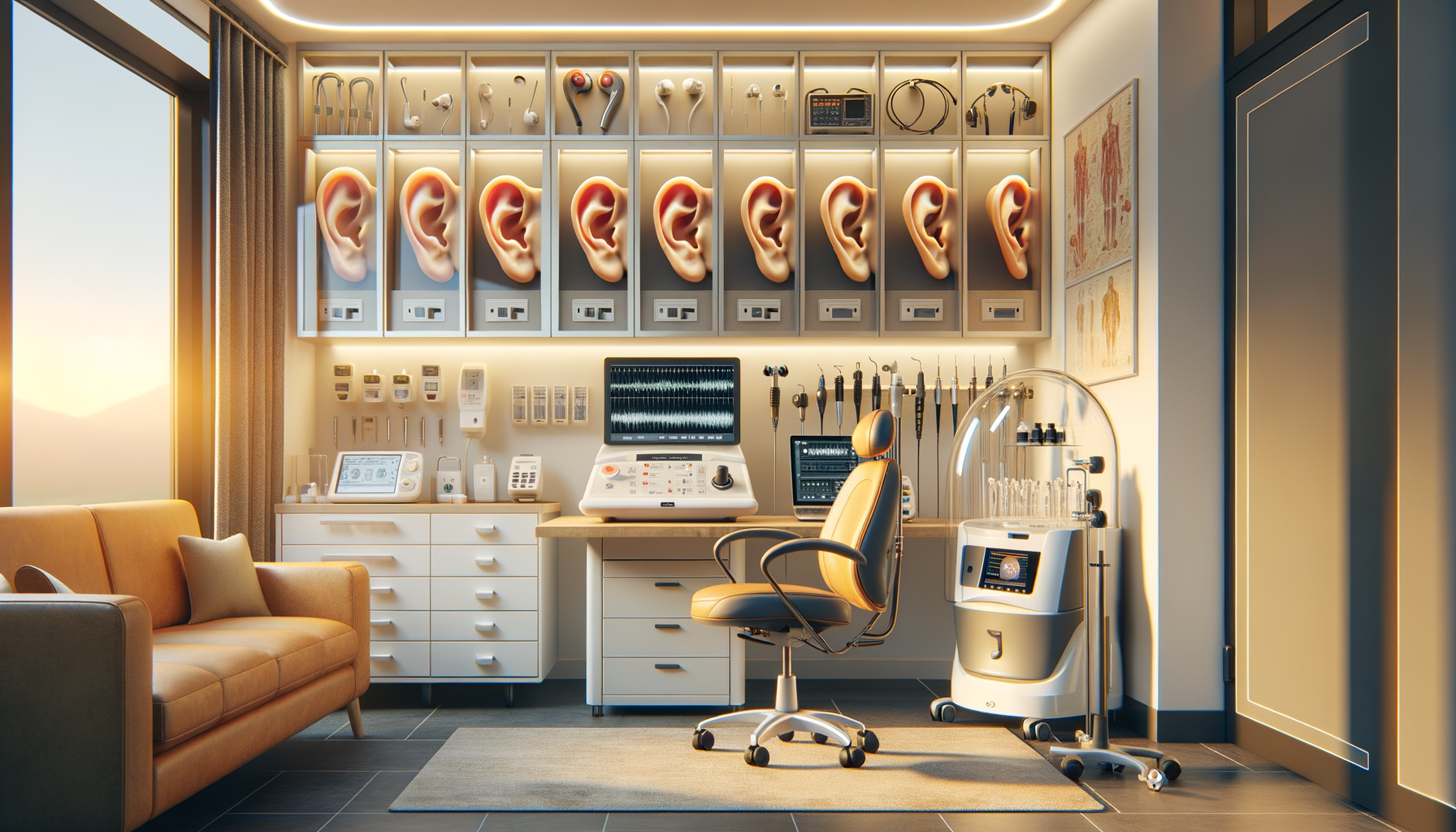
Hearing Life Again: How Seniors Are Embracing New Technology
Understanding the Role of Hearing Clinics
Hearing clinics play a pivotal role in the journey toward better hearing health. These specialized centers are equipped with the technology and expertise necessary to diagnose and treat various hearing impairments. The importance of hearing clinics cannot be overstated, as they provide a comprehensive approach to hearing care, offering services that range from hearing tests to the fitting and maintenance of hearing aids.
At the heart of hearing clinics is the audiologist, a healthcare professional trained to evaluate hearing loss and recommend appropriate solutions. Audiologists conduct a series of tests to assess the type and degree of hearing loss, which is crucial for determining the most effective treatment plan. These tests often include pure-tone audiometry, speech testing, and tympanometry, each providing insights into different aspects of auditory function.
Beyond diagnostics, hearing clinics offer a range of hearing aids and assistive listening devices. Modern hearing aids are not just about amplifying sound; they are sophisticated devices that can be customized to the user’s specific needs. Features such as noise reduction, directional microphones, and connectivity with smartphones and other devices make them highly adaptable to various listening environments.
In addition to technology, hearing clinics provide essential support services. Counseling and education are integral parts of the process, helping patients and their families understand the implications of hearing loss and how to manage it effectively. This holistic approach ensures that individuals not only receive the necessary devices but also the knowledge and support needed to enhance their quality of life.
The Advancements in Hearing Technology
Technological advancements have revolutionized the field of audiology, offering new possibilities for individuals with hearing loss. Hearing aids have evolved significantly from the bulky devices of the past to sleek, discreet models that boast a range of sophisticated features. These advancements have made it easier for seniors to embrace hearing aids as part of their daily lives.
One of the most notable advancements is the introduction of digital hearing aids. Unlike analog hearing aids, digital models convert sound waves into digital signals, allowing for more precise sound processing. This technology enables features such as automatic volume adjustment, feedback cancellation, and personalized sound profiles, which enhance the overall listening experience.
Connectivity is another significant development in hearing technology. Many hearing aids now offer Bluetooth connectivity, allowing users to stream audio directly from their smartphones, tablets, and televisions. This feature not only improves the quality of phone conversations and media consumption but also integrates hearing aids seamlessly into the digital lifestyles of users.
Rechargeable batteries have also become a popular feature, eliminating the need for frequent battery changes and offering a more sustainable option for users. Additionally, the development of waterproof and dustproof hearing aids ensures durability and reliability, even in challenging environments.
These technological advancements are not just about improving hearing; they are about enhancing the overall quality of life for users. By providing clearer sound, greater convenience, and seamless integration with other devices, modern hearing aids empower individuals to stay connected with the world around them.
The Impact of Hearing Clinics on Quality of Life
Hearing clinics have a profound impact on the quality of life for individuals with hearing loss. By providing access to advanced hearing solutions and comprehensive care, these clinics play a crucial role in helping people maintain their independence and engage more fully in social activities.
One of the most significant benefits of visiting a hearing clinic is the personalized care that patients receive. Each individual’s hearing needs are unique, and audiologists work closely with patients to tailor solutions that best fit their lifestyle and preferences. This personalized approach ensures that individuals receive the most effective treatment, leading to better outcomes and higher satisfaction.
Improved hearing has a direct impact on social interactions. Many individuals with hearing loss experience feelings of isolation and frustration due to difficulties in communication. By addressing these challenges, hearing clinics help individuals reconnect with their loved ones and participate more actively in social gatherings and community events.
Moreover, hearing clinics contribute to overall well-being by addressing the emotional and psychological aspects of hearing loss. Audiologists provide counseling and support to help individuals cope with the changes brought on by hearing loss. This support is essential in helping patients build confidence and adapt to their new hearing aids.
In summary, hearing clinics are more than just providers of hearing aids; they are partners in the journey toward better hearing health. By offering comprehensive care and advanced technology, they empower individuals to lead more fulfilling lives, free from the limitations imposed by hearing loss.


